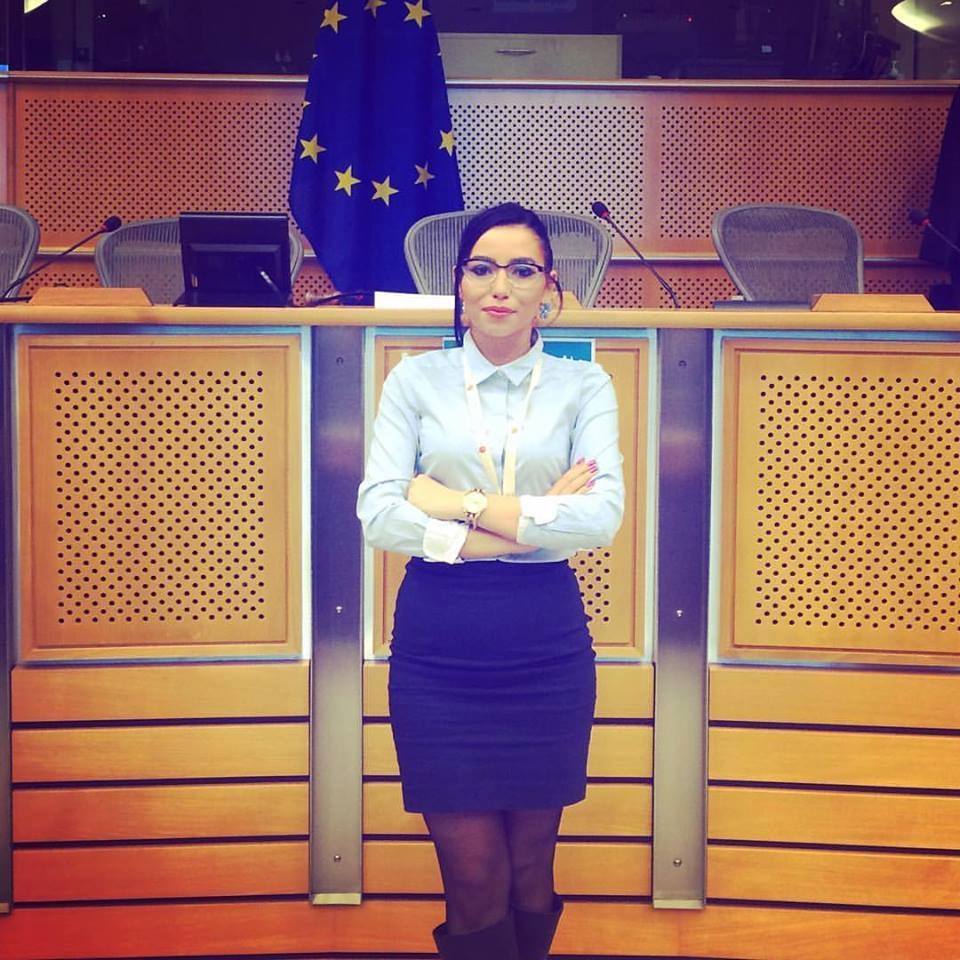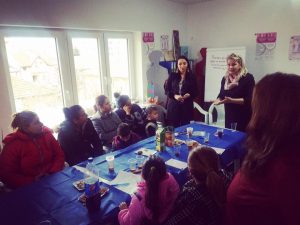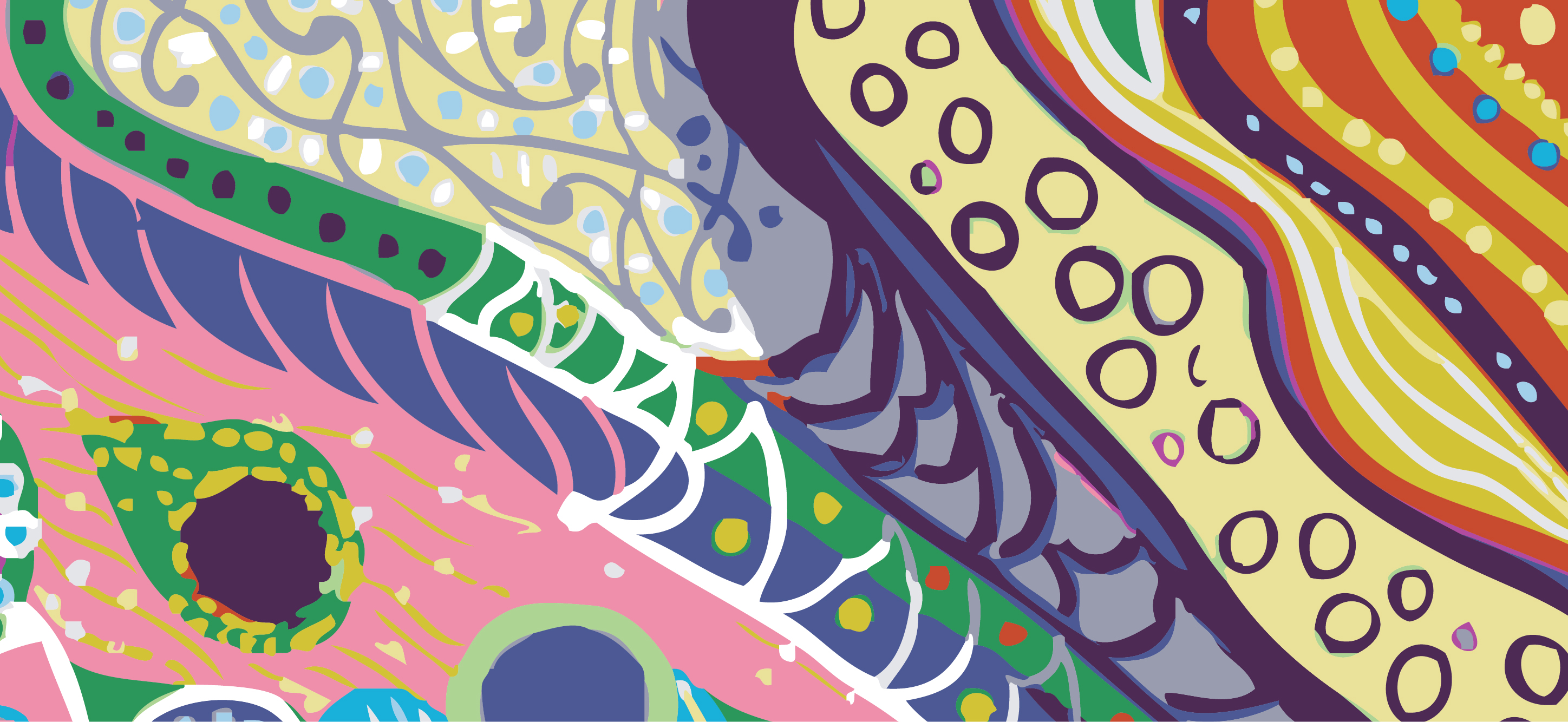
On International Romani Day (which falls on the 8th of April annually) we are featuring a blog by Senada Sali, a lawyer with the European Roma Rights Centre in Budapest. Thank you Senada for sharing your story.
My name is Senada Sali and I am a 26-year old Romani woman from Macedonia working as a lawyer at the European Roma Rights Centre in Budapest, Hungary. The European Roma Rights Centre (ERRC) is a Roma-led international public interest law organisation working to combat anti-Romani racism and human rights abuses of Romani people through strategic litigation, research, advocacy and human rights education.
Who are the Roma?
Roma are the largest ethnic minority in Europe with estimates of 10-12 million living on the continent. Originating from northwest India, in the Middle Ages our community migrated through the Middle East, and some through North Africa, to Europe. During the first encounters with our ancestors, Europeans imposed the word “gypsy” on us believing that we originated from Egypt because of our exotic features. Our community went through a history of persecution in Europe with over 70 to 80 percent of the Romani population being murdered in the Holocaust, a fact that is little known or recognized. Even lesser known fact is that the Roma experienced slavery in Romania for over five centuries, ending in 1860. Although we have settled in Europe for a long time and become an integral part of its society, culture and economy, a vast majority of us still frequently face prejudice, intolerance and discrimination. We are still victims of hate crimes , experience segregated education, and die in prison.
We cannot have a proper conversation about the situation of the Roma community in Europe without mentioning what it means to be a Roma woman facing intersectional discrimination in the form of racism, sexism, classism and other ways. This creates a perpetual cycle of oppression for the Romnja (term for Roma women in Romani language). In that context, it is important to mention that many Romnja among us still suffer from “normalized” domestic violence, barriers in access to gynecological care, financial dependence on men, and cultural shaming. An extensive survey of a Bosnian Roma Women’s NGO found that out of 609 women interviewed, over 43 percent suffered physical violence, while 76 percent knew a woman who had. Over 17 percent of women reported sexual violence as well. The survey findings exposed the abysmal lack of support for Romani women victims of domestic violence who contacted the police, healthcare, or social services. As one Romani woman described, “I gave up calling the police… when we call them, they often say, ‘Let it be, Gypsy business’.” Undoubtedly, a Roma woman must battle between a maze of societal oppressions within her community and in society on a daily basis. 
My Story
I personally consider myself lucky to be where I am today, as not many Roma women are given the opportunity to be leaders of social change in their communities, even when they have the potential for it. My first encounter with the law was at the age of five when my parents divorced. I was the second child in a Romani Muslim family. Both my parents belong to a Romani subgroup Djambazi – who traditionally deal with horse-trading. My parent’s marriage was not a love match. My mother was a victim of constant domestic abuse and violence in the marriage but her calls for help were never taken seriously by the police officers from the local police station. This non-reaction was mainly the result of many negative stereotypes about Roma that prevail in society, one of which is the belief that violence is a normal way of settling conflicts within a Roma family. It was only after five years of institutional non-reaction, when the lives of my mother and I were put in direct danger, that the authorities decided to treat our call for help seriously. Twenty year later, thanks to the unconditional support of my single mother, I managed to successfully complete my legal education and become a qualified lawyer.
Today, I am making use of my life experience and legal knowledge to help my Romani clients, among whom are many young Romani women. I work to secure justice for them in cases of institutional discrimination by using the international human rights framework in combination with the legal systems of the countries where they live. The main focus of my legal work at the ERRC is strategic litigation of cases concerning institutional racism and discrimination towards Roma in countries from the Western Balkan region (Macedonia, Serbia, Kosovo, Albania, Bosnia and Herzegovina, Montenegro). This includes cases of Romani women being denied gynaecological health services, sexual abuse of Romani girls placed in state care, forced evictions of pregnant Romani woman living in informal and impoverished settlements, improper state responses to cases of domestic violence against Romani women. Therefore, in the course of the last two years through my work at the ERRC I managed to file a vast number of complaints before national courts, the European Court of Human Rights (ECHR) and international human rights mechanisms such as the Optional Protocol to CEDAW seeking redress for institutional racism and discrimination against Romani women.
Using CEDAW to Uphold Romani Women’s Rights
I would like to highlight a case of forced eviction of six pregnant Romani minors left homeless after the demolition of their makeshift dwellings located in an informal and impoverished Romani settlement (known as “Poligon”) in Macedonia’s capital- Skopje. The demolition was a result of the mayor’s plan to privatize that land to a foreign investor for the purpose of building a grandiose baroque hotel on the location. For this case, I decided to use the OP-CEDAW individual complaints mechanism to address the multiple intersecting challenges and human rights abuses faced by my clients.
 It is important to note here that intersectionality, in the case of Roma women, is most often conceptualized in terms of gender and race/ethnicity. However, as this case and many other examples from my legal work show, it is of utmost importance to take into account all other inextricably linked identities, factors and experiences that form a Romani woman’s identity in order to have a clear picture of the exact challenges and extent of discrimination faced by the woman in question. Poverty and exclusion, age, health condition, sexual orientation can all intensify the degree of discrimination faced by a Romani woman.
It is important to note here that intersectionality, in the case of Roma women, is most often conceptualized in terms of gender and race/ethnicity. However, as this case and many other examples from my legal work show, it is of utmost importance to take into account all other inextricably linked identities, factors and experiences that form a Romani woman’s identity in order to have a clear picture of the exact challenges and extent of discrimination faced by the woman in question. Poverty and exclusion, age, health condition, sexual orientation can all intensify the degree of discrimination faced by a Romani woman.
I personally believe that the CEDAW framework provides a unique approach in understanding and addressing the forms of intersectional discrimination to which women from disadvantaged communities (such as my clients) are subjected to. The six pregnant Romani minors that were forcibly evicted from their homes experienced disadvantages and discrimination not only based on their race i.e. their Roma belonging, but also on basis of their gender and other inextricably linked identities, factors and experiences such as their age, their pregnancy status, their extremely poor socio-economic conditions and exclusion. In such situations it was necessary to examine exactly how these other identities and factors contributed to the race and gender discrimination and inequality they faced.
Hence, in the actual complaints I invoked several Convention articles such as Article 2 (d) and (f), Article 4 (1) and (2), Article 12 (1) and (2), Article 14 (b) and (h). The CEDAW Committee responded to the complaint by issuing interim measures twice in October and December 2016, requesting that the Macedonian Government immediately provides emergency reproductive care, housing, access to water and proper nutrition to the pregnant Romani minors.
Unfortunately, this is just one step in the battle for securing justice for my clients. Until today, apart from offering a temporary accommodation in a local shelter over winter, the Government has not undertaken any significant steps for providing a more durable solution for the accommodation, living conditions, exclusion and other challenges faced by these women and also their newborns. Therefore, the ERRC continues to support these women and their communities to secure justice through stronger advocacy and litigation.
Way Forward
In closing, I believe these are crucial messages to be delivered to both activists fighting for the rights of the Roma as well as to feminist movements fighting for women’s equality and rights.
– As activists for Roma rights- human rights of Roma cannot be fully realized without acknowledging that there are other inextricably linked identities, factors and experiences such as gender, class, social exclusion, age, sexual orientation and more, that can seriously further undermine the access to human rights of a Roma person.
– As feminists fighting for women’s rights- we cannot have a conversation about human rights of women without discussing how the racial, class, social exclusion, age, sexual orientation and other hierarchies within our group undermine the enjoyment of human rights by our sisters with such multiple and intersecting identities.
Macedonia will be reporting at the 71st CEDAW session later this year. ERRC’s submission to the CEDAW pre-sessional working group raises a list of issues regarding the rights of Romani women.
Senada Sali
Lawyer
European Roma Rights Centre
+36 30 950 0722

